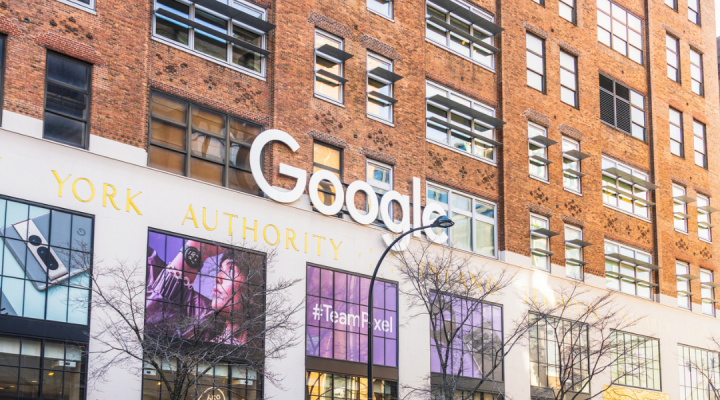From Diageo to Starbucks, several of the world's most prominent consumer businesses have paused ad spending on Facebook over its handling of controversial posts
The advertiser boycott raises several important questions including the motivation for withdrawing advertising, the short-term and long-term impact on advertisers and the platform, and whether this action will lead to lasting change at Facebook.
There are many potential reasons for joining the boycott, but three stand out perhaps more than others: values, fear, and as a response to stakeholders.
Values often differ within and across people. A value-driven boycott requires either a high degree of internal consistency in beliefs about the nature of hate speech and the role of Facebook in relation to it, or it requires that the decision makers ignored those whose values are misaligned with a boycott.
In some cases the responses have been idiosyncratic. For example, Unilever decided to halt advertising on both Facebook and Twitter. Unilever's decision may come from a general feeling of skepticism about social media and fits into a broader theme, as Twitter now faces a 'walkout' of its own over claims that the platform responded too slowly to anti-semitism.
Fear often motivates businesses in high-profile decisions. Perhaps ironically in this case, the ease with which negative messages can spread on social media intensifies fears of consumer backlash. Decisions made out of fear typically involve informal, approximate calculations of the risks involved in doing nothing. The risk of backlash typically depends in large part upon the decisions of competitors. P&G naturally comes to mind in relation to Unilever, and as such has likely faced increased scrutiny on the back of Unilever’s move. P&G so far has not joined the boycott and has decided 'not to make public declarations' about its decisions going forward.
As businesses and their stakeholders are composed of people, it is only natural that they mirror the sentiments of the public at large.
Understanding and acting on those sentiments may confer material benefits such as increases in share price, positive word of mouth, or increased loyalty. In this sense, then, the boycott may simply stem from good business practices.

It is important to specify the time horizon for any discussion of implications. Here, the short term means roughly 4-5 months and the long term means 1-2 years.
As a result of ongoing research, we are in a position to examine the short term costs to brands of boycotting Facebook. To do so, we examined seven of Kantar’s brand-related campaign performance metrics across six industries and estimated the percent difference between campaigns with Facebook and counterfactuals of those same campaigns if they had reduced Facebook spending to zero and instead reallocated the budget to other advertising media. This way, brands are budget-neutral, but we capture the Facebook-specific contributions as well as the complex inter-channel combinations that drive brand outcomes.
We considered several brand metrics. First (1) Saliency, or general awareness, and two of its sub-components in (2) Aided Awareness, which measures how recognizable a brand is, and (3) Unaided Awareness, which measures how likely consumers are to think of a brand unprompted.
We also considered (4) Association, meaning the association between a brand and the ideas promoted in association with that brand and (5) Motivation, which captures general purchase intent, along with two indicators of consideration, referring to the likelihood that the average consumer would consider the brand or not. This study leverages data provided by Kantar on 900 campaigns from six different verticals: Auto, Financial Services, Food and Drink, Personal Care, Retailers, and Technology.
We find a range of predicted brand impacts, but in general they are negative. Broadly speaking, Facebook tends to drive “lower funnel” brand metrics, i.e. those which are more closely related to purchasing or other immediate results, as opposed to the development of brand equity.
Qualitatively speaking, Facebook complements other media channels well, by helping businesses convert brand equity into action. Facebook is one of the most heavily used advertising channels, but it is very rarely used alone. One apt analogy is that Facebook is like 'salt in cooking' in the sense that it enhances other 'flavours'.
Businesses that participate in the boycott could see a negative impact on brand metrics, especially Motivation. It is likely businesses believe that the reduction of risk or the favourable response from stakeholders will outweigh these negative impacts.
What about the long term?
Mark Zuckerberg has given his opinion that the boycott will end 'soon enough,' adding further that Facebook does not intend to change its position on whether it should regulate speech on the platform.
This is not the first firestorm involving Facebook, and the past provides useful guidance. The public are unlikely to forget completely, but a return of advertisers to the platform is probable.
Just as in the Cambridge Analytica scandal, this episode has cast attention to Facebook as a significant nexus for information exchange, and will increase the propensity for debate around its role in the future. From an empirical point of view, typically brands at the centre of controversy (in this case Facebook) see decreases in brand metrics, such as purchase intent and consideration, as well as trust. However, the brand metrics tend to recover quickly while trust takes much longer.
In other words, behaviourally the tendency is to return to doing business with the brand but with a less favourable and trusting attitude. Given Facebook’s record at the heart of public debates, it will likely return to business as usual, but will continue to bear an increased burden of scrutiny.




